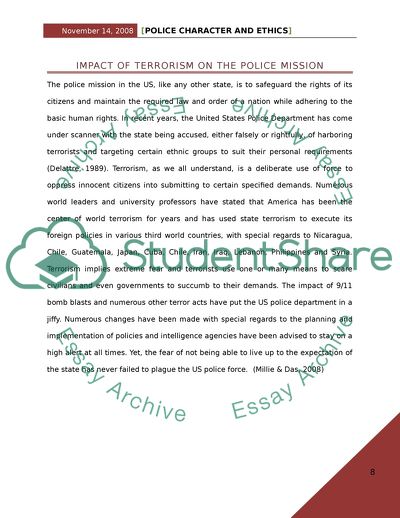Cite this document
(Impact of Terrorism on the Police Mission, Police Ethics Assignment - 1, n.d.)
Impact of Terrorism on the Police Mission, Police Ethics Assignment - 1. Retrieved from https://studentshare.org/military/1718002-police-character-and-ethics
Impact of Terrorism on the Police Mission, Police Ethics Assignment - 1. Retrieved from https://studentshare.org/military/1718002-police-character-and-ethics
(Impact of Terrorism on the Police Mission, Police Ethics Assignment - 1)
Impact of Terrorism on the Police Mission, Police Ethics Assignment - 1. https://studentshare.org/military/1718002-police-character-and-ethics.
Impact of Terrorism on the Police Mission, Police Ethics Assignment - 1. https://studentshare.org/military/1718002-police-character-and-ethics.
“Impact of Terrorism on the Police Mission, Police Ethics Assignment - 1”, n.d. https://studentshare.org/military/1718002-police-character-and-ethics.


